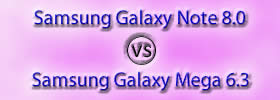Difference between Money and Wealth
Key Difference: Money is an intangible concept, which means it cannot be touched, it cannot be smelled; however it can be seen in terms of numbers. Money does have a few properties such as it must be a medium of exchange; a unit of account; a store of value; and, occasionally in the past, a standard of deferred payment. Wealth can be divided between two different meanings. One meaning states a person that has a lot of possessions and money can be considered as wealthy. While, another definition suggests that a person that has enough possessions that would allow him to sustain himself for the next coming days is considered as wealthier.
 Money and wealth are two concepts that are often confusing as they are often confused to be the same thing. However, this is not true. Money and wealth are two different concepts. Money and wealth have similar meanings according to the dictionary, which is in majority what causes the confusion. A person who has enough money can often afford wealth, but in some scenarios money won’t be able to attain wealth. Confused? Let’s try and clarify. Money is considered as an exchangeable commodity, which can be traded for certain things. Now, wealth is vaguely defined as a person who has money and possessions. However, there is a second meaning put forth by author Robert Kiyosaki, “The ability to survive a certain number of days forward.” Let’s look at them separately.
Money and wealth are two concepts that are often confusing as they are often confused to be the same thing. However, this is not true. Money and wealth are two different concepts. Money and wealth have similar meanings according to the dictionary, which is in majority what causes the confusion. A person who has enough money can often afford wealth, but in some scenarios money won’t be able to attain wealth. Confused? Let’s try and clarify. Money is considered as an exchangeable commodity, which can be traded for certain things. Now, wealth is vaguely defined as a person who has money and possessions. However, there is a second meaning put forth by author Robert Kiyosaki, “The ability to survive a certain number of days forward.” Let’s look at them separately.
Money is an intangible concept, which means it cannot be touched, it cannot be smelled; however it can be seen in terms of numbers. These days everything runs online, so if you transfer money from one account to another account, the only difference is in the numbers. You don’t actually see the tangible money or you cannot physically touch the money. That’s what money is! It is a concept that is used to describe a medium to exchange commodities. Originally, we used to have a barter system which would require trading one commodity for another. However, in today’s fast paced world, not everyone works or deals in commodities. Also, it would become a very time consuming job having to barter for every single thing. Hence, money makes it easier to trade one commodity against money, which can then be traded for another commodity or service.
Money does have a few properties such as it must be a medium of exchange; a unit of account; a store of value; and, occasionally in the past, a standard of deferred payment. Any kind of object that fulfills these functions can be considered as money. Although, previously gold was considered to be money as the banks would have gold reserved, based on which they would issue notes or currencies. These were basically promissory notes stating that it would pay you that amount of gold when presented with the currency. However, this has long since changed and one can no longer demand gold/silver or any such commodity upon presenting the cash. Money has now become a complete intangible concept that is represented by numbers in the system.
 Wealth can be divided between two different meanings. One meaning states a person that has a lot of possessions and money can be considered as wealthy. While, another definition suggests that a person that has enough possessions that would allow him to sustain himself for the next coming days is considered as wealthier. An excellent example found on relfe.com states when Hurricane Katrina hit New Orleans, many people lost their lives because of lack of clean water and adequate food supply. Did they have money? Sure; however, could they buy or purchase something that did not exist? No.
Wealth can be divided between two different meanings. One meaning states a person that has a lot of possessions and money can be considered as wealthy. While, another definition suggests that a person that has enough possessions that would allow him to sustain himself for the next coming days is considered as wealthier. An excellent example found on relfe.com states when Hurricane Katrina hit New Orleans, many people lost their lives because of lack of clean water and adequate food supply. Did they have money? Sure; however, could they buy or purchase something that did not exist? No.
The word wealth has been evolving to adapt this meaning, with many people considering wealth to be the ability to sustain themselves. This is being tied in with money in many ways because if a person has money, they have the ability to buy this sustenance, they can purchase the additional food supply and proper clothes. However, they only related and do not mean the same thing. The word ‘wealth’ is derived from the Old English word ‘weal’, meaning “stem”. The meaning of the word is considered to be context dependent, with many different fields manipulating the definition to its own benefit. For example: the United Nations defines it as a monetary measure which includes the sum of natural, human and physical assets. However, natural capital includes land, forests, fossil fuels, and minerals. Human capital defines it with the population’s education and skills, etc. As you can see the word wealth can be changed to mean different things depending on where it is being used.
Image Courtesy: lynntelfordsahl.com, fofoa.blogspot.com









Comments
To God the best and the greatest.This side helps allot in clearing my dout and feading my memory.
Kwanga corneliu...
Wed, 03/25/2015 - 13:29
it has helped me a lot even it has helped me learning a lot for my exam.
bhavya bhargava
Sat, 01/11/2014 - 23:18
Add new comment